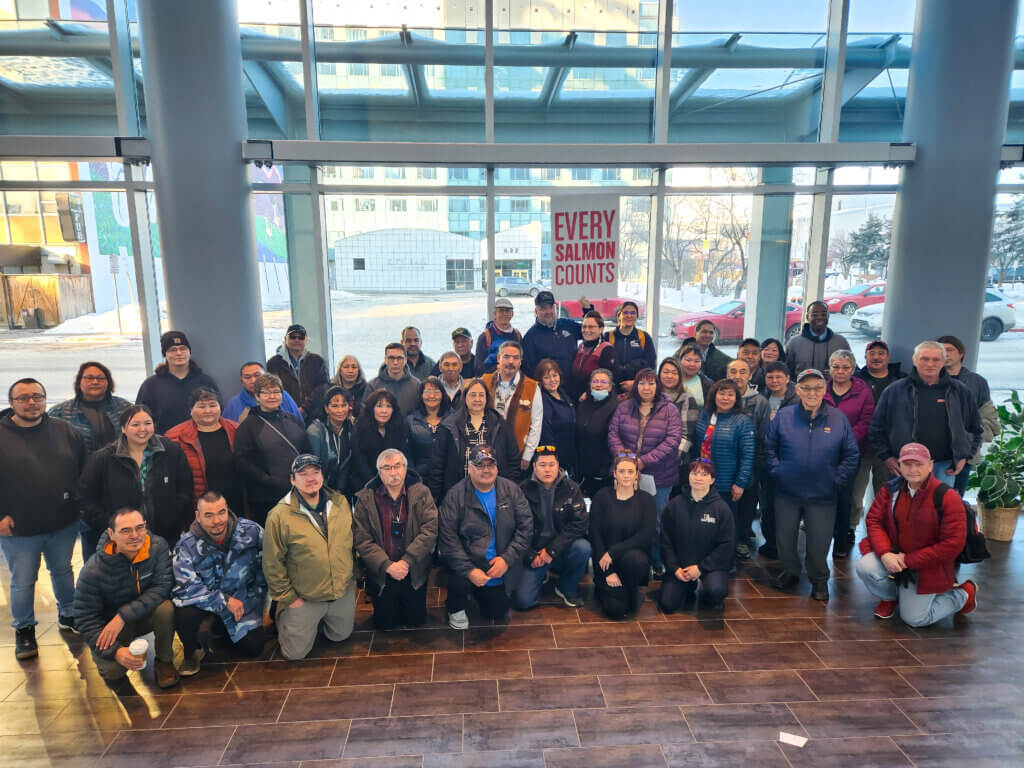 On Saturday, February 25, The Alaska Board of Fisheries (BOF) voted against Proposal 140, submitted by the Fairbanks Advisory Committee Fisheries Subcommittee. The proposal aims to reduce the allowed commercial fishing times and area in the South Alaska Peninsula (Area M) during the month of June in order to protect Arctic-Yukon-Kuskokwim (AYK) Chum Salmon from severe commercial interception. During the BOF meeting on Sunday, February 26, Alaska Natives from throughout the AYK area walked out of the meeting in protest after the BOF clearly demonstrated their unwillingness to compromise.
On Saturday, February 25, The Alaska Board of Fisheries (BOF) voted against Proposal 140, submitted by the Fairbanks Advisory Committee Fisheries Subcommittee. The proposal aims to reduce the allowed commercial fishing times and area in the South Alaska Peninsula (Area M) during the month of June in order to protect Arctic-Yukon-Kuskokwim (AYK) Chum Salmon from severe commercial interception. During the BOF meeting on Sunday, February 26, Alaska Natives from throughout the AYK area walked out of the meeting in protest after the BOF clearly demonstrated their unwillingness to compromise.
The BOF’s decision not to adopt Proposal 140 directly violates their statutory obligation as stated in AS 16.05.258 to prioritize subsistence needs over non-subsistence harvest. AS 16.05.258(b)(4)(A) states “if the harvestable portion of the stock or population is not sufficient to provide a reasonable opportunity for subsistence uses, the appropriate board shall adopt regulations eliminating consumptive uses, other than subsistence uses.”
“We are incredibly disappointed with the decision to prioritize commercial fishing over the needs of our subsistence users throughout Alaska by disregarding their statutory obligations,” says Chief/Chairman Brian Ridley, Tanana Chiefs Conference (TCC). “There has been no subsistence fishing on the Yukon River for years, but subsistence fisherman are still expected to unfairly carry the burden of conservation, making extreme sacrifices to protect what little salmon there is left. Meanwhile, Area M fishermen are unwilling to make meaningful sacrifices that would help our salmon stocks replenish.”
The BOF permits Area M commercial fishermen to intercept enormous quantities of chum from the AYK stock while they are migrating to their spawning grounds. Chinook stocks on the Yukon River are in the most severe decline ever seen, and recent chum salmon returns to the Yukon and Kuskokwim rivers are the lowest on record.
“The Board’s actions this week will not deter TCC or our Tribes from continuing to do everything we can to ensure the protection of our salmon and our way of life,” said Chief Ridley, “The testimonies by our subsistence fishers are backed by science, data and indigenous knowledge and we will continue to fight for our salmon to return to the rivers. I want to thank all of our tribal leaders, tribal members and partners throughout the AYK, Bristol Bay and Chignik for standing with us this week.”
TCC will be exploring other options to ensure that subsistence use is prioritized in the future.
